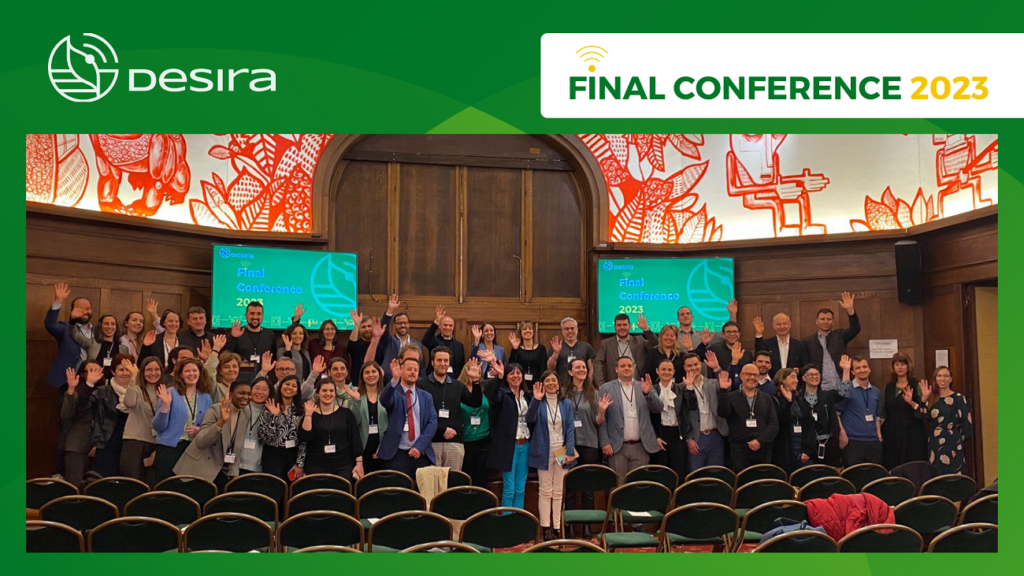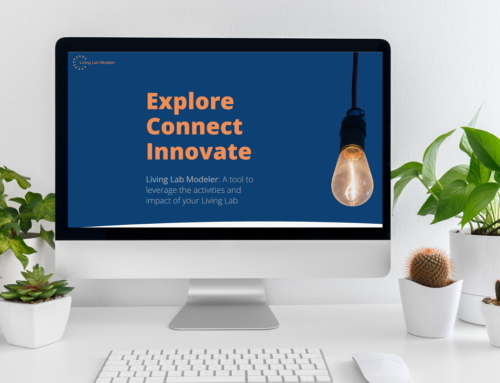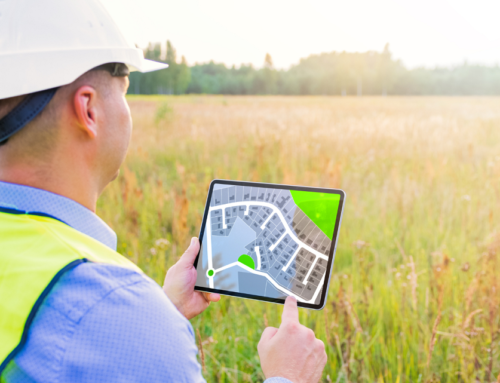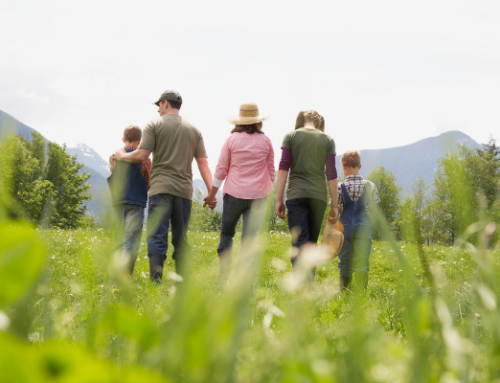
Author: Leticia Abarca Velencoso (AEIDL)
The final DESIRA conference took place on the 26th and 27th of April 2023 in Brussels, Belgium, and featured a range of speakers discussing the challenges and opportunities of digitalisation in rural areas. The conference’s opening keynote speaker, Gianluca Brunori, from the University of Pisa, emphasised that “digitalisation is a social-technical transformation that involves winners and losers, with a need to understand the context of digitalisation to address its challenges.”
The conference also included a keynote speech by Evangelia Mourmoura, from the European Commission’s Directorate-General for Agriculture and Rural Development (DG AGRI), who discussed the role of digitalisation in the context of the Common Agricultural Policy (CAP).
She highlighted that the EU’s agriculture sector faces challenges such as environmental sustainability and income generation for farmers, which can be addressed through digitalisation. “We are in front of an unprecedented opportunity: Digitalisation has the potential to improve the effectiveness of agrosystems, to reduce our environmental footprint as well as create jobs,” she said.
However, she also highlighted the challenges, such as the cost-effectiveness of digitalisation, lack of trust in data sharing, and lack of digital literacy among farmers.To tackle these challenges, Mourmoura emphasised that digitalisation solutions should be integrated, and there should be coordination among different rural policies.
In addition to the keynote speeches, Pascale Van Doren, from the Rural Pact Support Office, discussed the role of the Rural Pact in promoting digitalisation in rural areas. The Rural Pact is part of an EU-wide initiative to promote cooperation between different stakeholders, including national and local governments, NGOs, and universities.
The last part of the session was starring by Franc Bogovič, MEP, Chair of RUMRA & Smart Villages Intergroup, Radim Sršeň, Deputy Minister for Regional Development of the Czech Republic, CoR Member and Fabio Boscaleri, Coordinator of the Network of European Regions for Innovation in Agriculture, Food and Forestry. In the format of a high-level panel, they discussed the role of policies fostering rural digitalisation, representing the three realities of the rural perspective, local, national and European.
Finally, Isabel Carvalhais MEP, rapporteur of the Long-Term Vision for Rural Areas, Member of the RUMRA & Smart Villages Intergroup, closed the first day of the Conference with a keynote speech on the importance of rural digitalisation for the future of rural communities.
During the second day, Alexia Rouby, from DG Agri, highlighted the various actions the European Commission is taking to realise a digital future for rural areas. One of the critical challenges is to increase digital literacy as less than 50% of households in rural areas have basic digital skills. Stavros Kalapothas, from DG Connect, spoke about how digitalisation is transforming rural areas and the goal “to reach to all populated areas with fixed broadband connectivity as well as 5G by 2030.” At the event, Arianna Pasa, from DG Agri presented the priorities of the EU research agenda aimed at improving rural digitalization, highlighting the upcoming calls and opportunities for projects in the field. Along the same lines, Yulia Barabanova from the Joint Research Center shared insights from the last JRC-Agri report, shedding light on the long-term implications of digital transitions for farmers and rural communities. Together, their presentations provided valuable perspectives on the challenges and opportunities in this critical area of research. To wrap up the session, Gianluca Brunori and Doris Marquardt provided a comprehensive overview of the key takeaways from DESIRA and shared their vision for the contribution of the project.
The DESIRA conference highlighted the importance of understanding the context of digitalisation and its potential to address the challenges facing the EU’s agriculture sector, the need for integrated solutions and coordination among different rural policies to ensure sustainable digitalisation that benefits all stakeholders. In addition to its primary purpose, the conference also served as a platform for spreading DESIRA’s results and tools. Several presentations and workshops were conducted to showcase the DESIRA Policy Road Map and Recommendations, the DESIRA Ethical Code, and various digital tools and experiences developed by the consortium. They were followed by the presentation DESIRA Declaration for a digital future, where participants can compromise to contribute to DESIRA’s objetives. The overarching goal of all the activities, which include two sessions of pitches from projects, was to promote engagement, foster participation, and establish meaningful connections among the participants.
The DESIRA conference was a crucial event for discussing digitalisation in rural areas, and the importance of context, coordination, and integration to ensure the sustainable digitalisation of the EU’s agriculture sector. As the EU moves forward with its Rural Action Plan and Long-Term Vision for Rural Areas, it will be essential to continue these discussions and collaborations to ensure that the potential of digitalisation is fully realized in rural areas.
Check out the highlights video of the conference with some of our high-level speakers!





